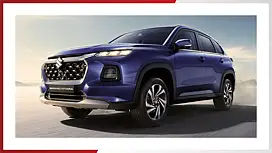
Hyundai Motor Company has unveiled concept models of advanced electric three-wheelers and micro four-wheelers at the Bharat Mobility Global Expo 2025. In collaboration with TVS Motor Company, Hyundai is exploring potential solutions to enhance last-mile mobility in India.
These new concepts are a testament to Hyundai’s unwavering commitment to sustainability, convenience, and adaptability within India's dynamic transportation landscape. While no formal agreements have been finalised, the two companies are looking at leveraging Hyundai's expertise in design, engineering, and technology, while TVS Motor would focus on the manufacturing and marketing of these vehicles.
'Hyundai Motor is a customer-centric brand, and caring for people in India is our first mission,' said SangYup Lee, Executive Vice President and Head of Hyundai and Genesis Global Design. 'By collaborating with TVS Motor, we aim to locally produce the three-wheeler while exploring global opportunities for the four-wheeler, combining functionality with the spirit of a rapidly evolving India.'
Hyundai’s vision aligns with India’s push for sustainable urban mobility, with a focus on reshaping last-mile connectivity through electric vehicles (EVs). The company aims to address the pressing need for eco-friendly solutions that are well-suited to India’s diverse urban environments.
“TVS is proud to explore a partnership with Hyundai Motor to shape the future of urban mobility,” said Sharad Mishra, President, Group Strategy, TVS Motor Company. 'By combining Hyundai’s global expertise with our local knowledge, we are confident that this collaboration will set new standards in design, technology, and quality.'
The Concepts
Hyundai's Micro Mobility Concept vehicles aim to redefine urban mobility, addressing the growing need for sustainable alternatives to traditional transport. These innovative designs include features such as an angled windshield for superior visibility, enhanced collision protection, a flat floor, and extended wheelbases for superior ergonomics and comfort. The electric three-wheeler concept is designed to transform the classic Indian motor rickshaw into a versatile, eco-friendly vehicle capable of serving multiple purposes, including transportation, logistics, and emergency response.
These concepts also reflect Hyundai’s focus on safety, with a unique diagonal profile that ensures improved collision protection. The adjustable body height allows the vehicle to navigate through waterlogged streets during monsoon seasons, showcasing Hyundai’s adaptability to India’s weather conditions.
Design Features and Human-Centered Engineering
Hyundai’s commitment to India is evident in the thoughtful design details. The Electric Three-Wheeler Concept offers a compact size and high manoeuvrability, ideal for navigating the narrow streets typical in Indian cities. The vehicle’s ergonomic design includes large tires for smoother rides on rough terrains, and a towing hook for easy recovery from potholes.
The interior is designed for practicality and comfort, with features like flexible storage solutions, a slim cluster design for intuitive information display, and a dedicated phone holder. These elements aim to enhance user experience and connectivity, all while maintaining a focus on safety and hygiene.
Hyundai Motor has also considered the extreme temperatures and heavy rainfall in India, using heat-reducing gloss black paint on the roof and exploring water-resistant materials for the interior surfaces. The colour ‘Aakaashi Blue’, inspired by the vast Indian Ocean and sky, represents the limitless aspirations of the Indian spirit and complements the vehicle’s practical features.
The Path Forward
Hyundai and TVS Motor will now analyze the potential integration of these concept vehicles into India’s traffic ecosystem. With an eye on local production, Hyundai is exploring the practicality of the electric three-wheeler, while the four-wheeler concept may have a more global rollout. Both companies are keen to launch a project that will not only meet the demands of Indian consumers but also set new benchmarks in electric vehicle design, technology, and sustainability.
Through these innovative concepts, Hyundai Motor aims to reshape last-mile connectivity in India, offering a glimpse of a future where sustainability and convenience come together to meet the evolving needs of urban transportation.

